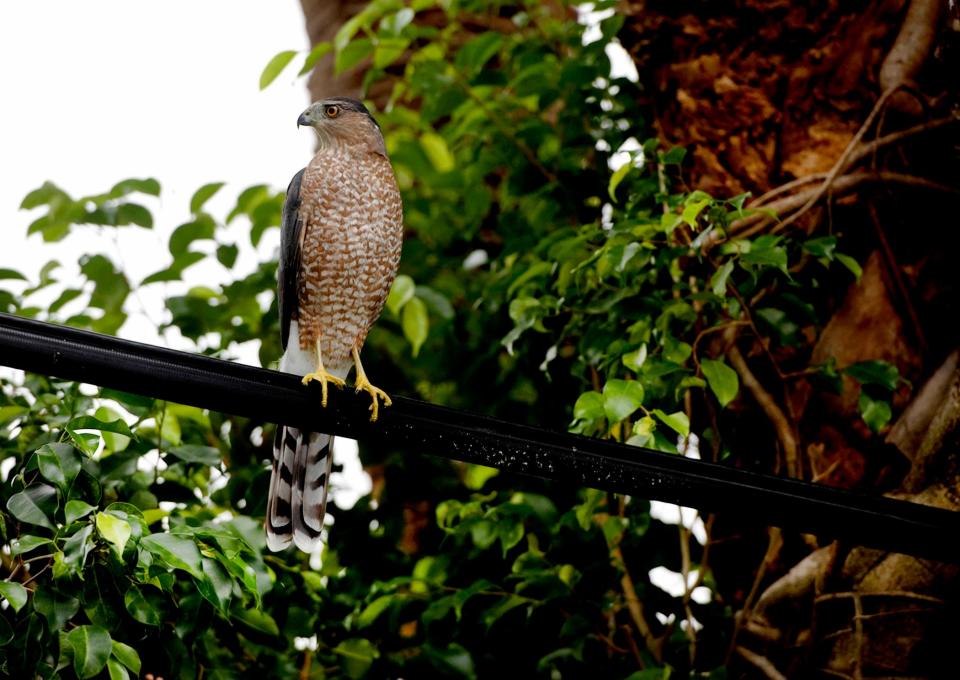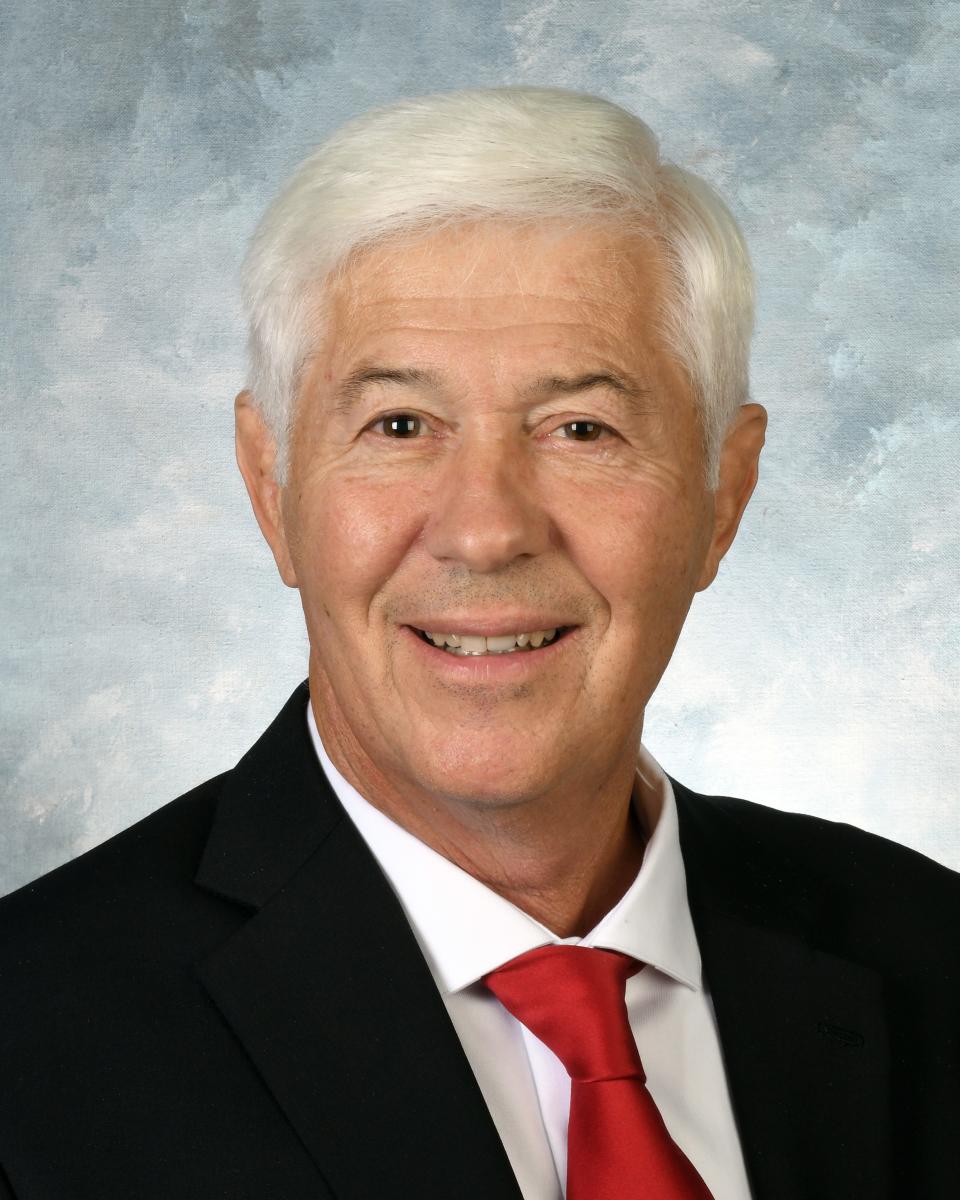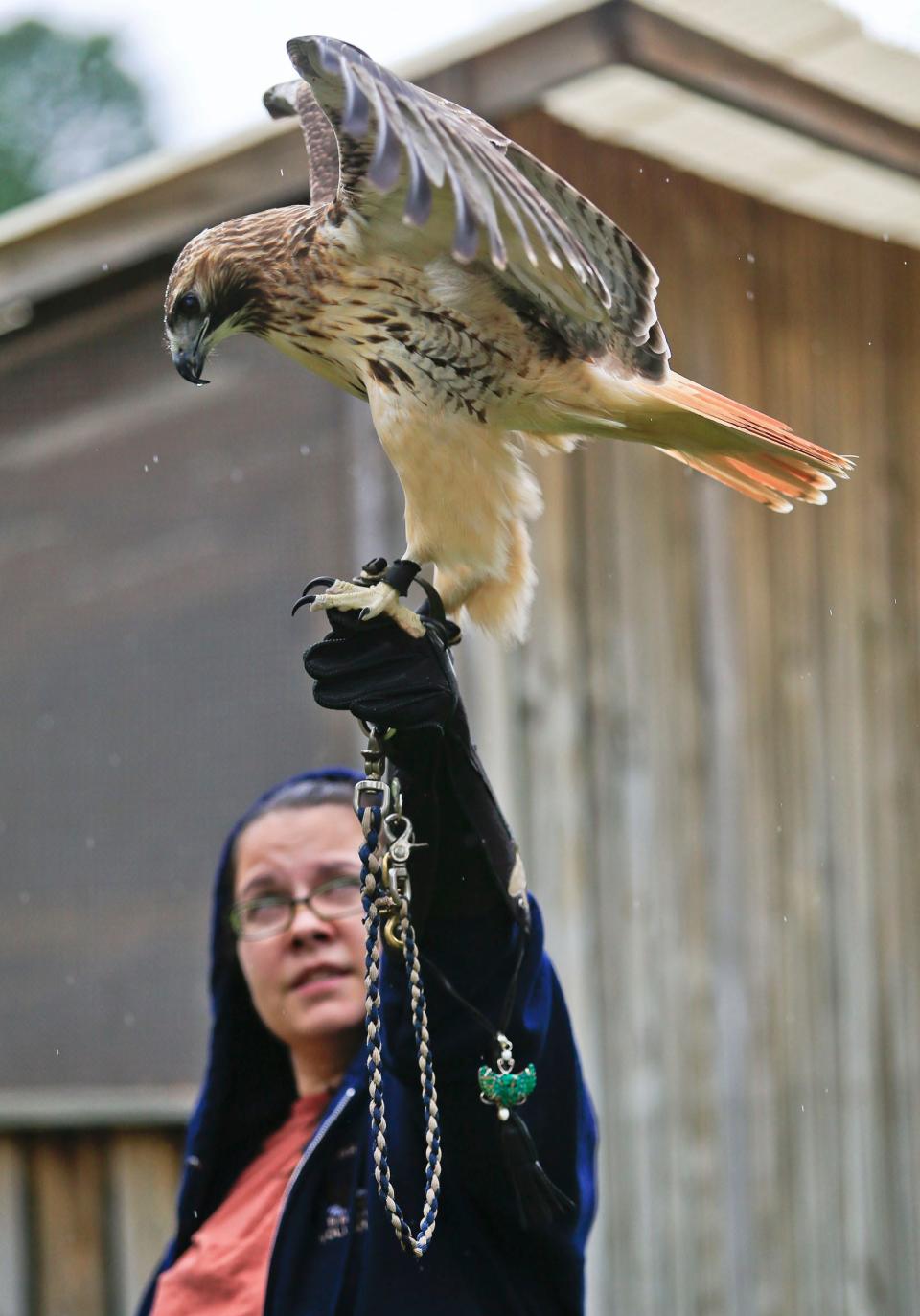Kentucky lawmaker wants to drop penalties for killing hawks. Conservation groups not happy

A Kentucky lawmaker is seeking to remove penalties for the killing or capture of two protected species of hawks, drawing the ire of conservation groups.
Under Senate Bill 59, sponsored by Sen. Gary Boswell, R-Owensboro, killing red-tailed hawks or Cooper's hawks would draw no fines or penalties in Kentucky, and the state's Department of Fish and Wildlife Resources would be prohibited from taking enforcement action.
Both species are currently protected by federal law. Regulations in Kentucky and neighboring states also prohibit killing hawks, with multiple state wildlife agencies pointing to their importance for ecosystems and agriculture as a form of pest control.
Boswell said the two species are overpopulated in Kentucky and pose an outsized threat to smaller animals, including songbirds, game birds, rodents, turkeys, farm chickens and cats.
In a Facebook post, he said one constituent "reported his cat was taken away by a hawk in his front yard in the city of Owensboro in front of his young son."
"I'm not looking to go out and kill all the hawks," Boswell told The Courier Journal. "I love hawks, but there's too many."
The bill's filing drew quick condemnation online and from local environmental groups, including the Louisville Audubon Society, which came to the defense of the "iconic bird species" in a letter to Boswell.
Do you think killing hawks is OK? Submit a letter to the editor here.
"These raptors play crucial roles in maintaining the balance of our ecosystems by controlling populations of rodents and other small mammals," the letter said. "By regulating their numbers, they help prevent outbreaks of diseases and reduce crop damage caused by these animals."
Brainard Palmer-Ball, a Kentucky ornithologist, said the legislation "is so ignorant as to not even give it a second."
Decades of protection

Both red-tailed and Cooper's hawks have enjoyed protected status across the United States for decades, after their addition to the Migratory Bird Treaty Act in 1972.
"Despite the problems they may cause, hawks and owls provide important benefits and environmental services," according to the U.S. Department of Agriculture, as they "hunt and kill large numbers of rodents, reducing crop damage and other problems."
And states across the country, including Kentucky, have their own protections on the books, empowering state agencies to take enforcement action against those who kill or capture protected species.
Kentucky law currently calls for a fine of between $100 and $500 and up to six months imprisonment for killing one of the birds. Federal protections bring fines of up to $15,000 per bird, and up to six months imprisonment.
"These birds are extremely beneficial," says the Ohio Department of Natural Resources of the red-tailed hawk, "and it is illegal to kill them."
Habitat degradation and free-ranging cats "are a far greater threat than raptors" to songbirds and game birds, according to a publication of the Missouri Department of Conservation, and "killing raptors could actually hurt populations of birds since raptors help control rodents and other small mammals that prey on ground-nesting birds."
Boswell conceded that cats and habitat losses are a serious issue for bird populations, but said hawk overpopulation poses a bigger threat. Asked for a source to support that position, the senator cited his own decades of experience as a hunter and farmer around Henderson County, and run-ins with the two species named in the bill.

"They don't have any natural predators," Boswell said. "And I know the biologists may say they do, but they don't. I'm out here."
Both the red-tailed hawk and Cooper's hawk are listed as "apparently stable" in population for Kentucky, according to NatureServe's current conservation status data. But in every state bordering Kentucky, the Cooper's hawk is deemed "vulnerable" by the organization's assessment.
'A dangerous precedent'
Officials from the state's Department of Fish and Wildlife Resources had little to say about the bill, and Boswell said he did not speak with officials from the department before filing the legislation.
"We discovered the bill when it was filed, just like the general public," Lisa Jackson, a spokesperson for the department, said in a statement. "This is not an initiative of the department."
Jackson also pointed to existing federal regulations, adding, "In cases where a protected bird species is causing damage, such as instances of black vulture depredation on livestock, lethal control measures require a federal permit and should be considered a last resort after non-lethal deterrents have been tried."

Even if Boswell's bill passes, killing a hawk would remain a violation of those long-standing federal protections.
The Kentucky Resources Council, in a recent statement of its positions on various environmental bills in the new legislative session, opposed Boswell's bill, saying its contradiction with federal protections "might result in confusion and result in individuals violating and being prosecuted under federal law."
"I'm trying to, at the very least, send a message that Kentucky ... we should be in charge of our own laws regarding wildlife," Boswell said.
He added he intends to meet with hunting and agriculture groups to gain support for the bill, including the Kentucky Farm Bureau, which he said had not given an official position yet as of Monday.
The bill has been assigned to the Senate Natural Resources and Energy Committee.
In its letter to Boswell, the Louisville Audubon Society called on him to withdraw the bill, which the group said "would set a dangerous precedent by suggesting that our state is willing to compromise the well-being of its wildlife for short-term gains."
Connor Giffin is an environmental reporter for The Courier Journal and a corps member with Report for America, a national service program that places journalists in local newsrooms to report on under-covered issues. The program funds up to half of corps members’ salaries, but requires a portion also be raised through local community fundraising. To support local environmental reporting in Kentucky, tax-deductible donations can be made at courier-journal.com/RFA.
Learn more about RFA at reportforamerica.org. Reach Connor directly at cgiffin@gannett.com or on X @byconnorgiffin.
This article originally appeared on Louisville Courier Journal: Kentucky lawmaker proposes removing penalties for killing hawks

